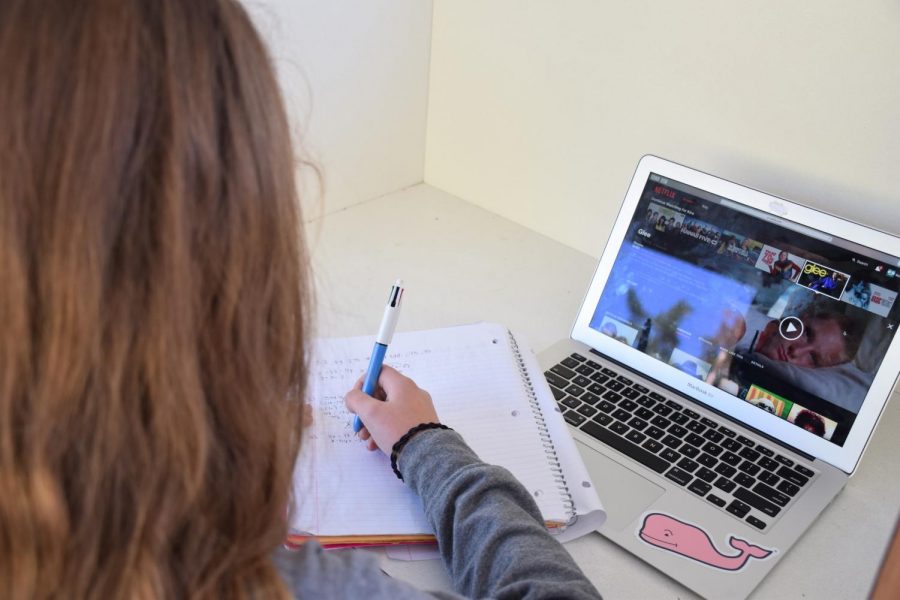Binge Viewing Sucks away Precious Time
December 5, 2017
Boasting thousands of TV shows and movies, Netflix has the power to divert the attention of even the most devoted student. Time slips away as the addicted mumble, “just one more episode” while reaching for the remote.
Students routinely complain about lack of sleep as a result of schedules packed with academics, clubs, sports, tutoring, test prep and family, but a more plausible explanation is the time-sucking gravitational force of Netflix.
A recent Netflix survey indicates its viewers spend an average of 568 hours streaming yearly or about 1.5 hours per day. While these number may be true for the average adult, are they for teenagers? Not likely.
Freshman Sam Hansen logs around 2.5 hours per day; freshman Kennedy Merion watches close 2 hours a day. Freshman Megan Wykle spends 1.5 hours on any given day, though she says it “depends on the show.”
“I’m gonna be quite honest,” said senior Dima Firsov before disclosing she spends up to 4 hours watching Netflix on some days of the week, and averages 13 hours per week.
What is driving such obsessive and academically counterproductive behavior?
“I think I spend a lot of time . . . because the TV shows and movies are more entertaining than homework or other activities,” said Merrion, conceding that streaming is “addictive in some ways.” “Instead of doing something productive, like homework, I watch Netflix,” she explained.
Firsov recognizes that time spent watching Netflix is time not doing things that are, perhaps, more important. “I can be doing college apps, homework . . . more productive physical activities. Anything and everything [other than streaming],” said Firsov.
Netflix’s popularity with teens is one sustained through soap-opera-like plots. “It has some juicy stuff, like Riverdale and Stranger Things,” said Hansen of two favorite mystery series. “You have to watch more because of they [episodes] all end on a cliffhanger.”
Self control is certainly not a common or powerful trait among teen viewers, and the enticing nature of serial entertainment easily overpowers the faint calls of conscience in the teenage brain.
Their shows “always leave you wanting to watch more,” said Wykle.
Firsove goes further, suggesting that teens are lured by the opportunity to isolate themselves from responsibility. Netflix allows us to “forget about the real world . . . and enjoy a story.”
Netflix does more hurt than harm. “It is one of the key components of procrastination,” said Merrion. But for now, the correlation between student time mismanagement and egregious streaming seems easily overlooked.
“Netflix is a great app,” concluded Merrion, “but it has its disadvantages.”

